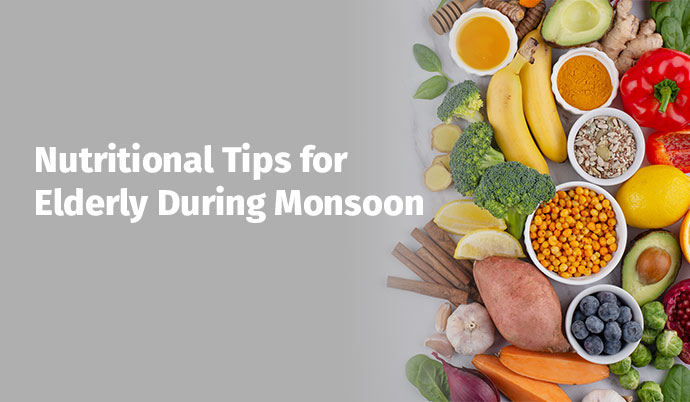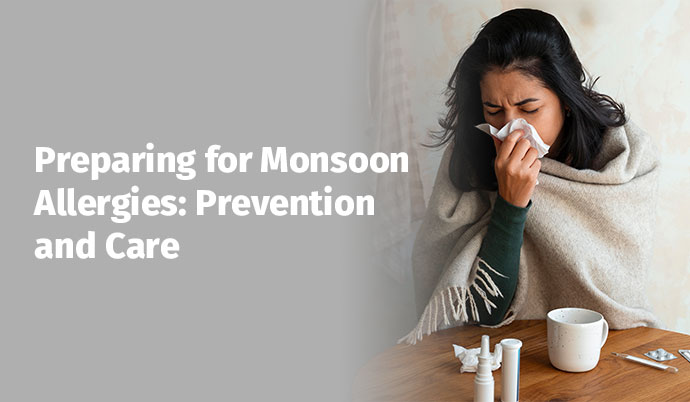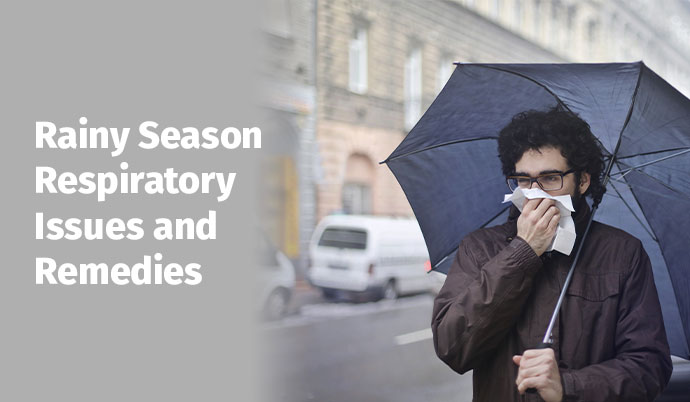
To be honest, the Indian monsoon seasons are not only romantic rain showers; they welcome a flood of infections. A report by the Indian Council of Medical Research (ICMR) suggests a nearly 30 to 35% increase in the number of people being affected with waterborne diseases such as cholera, typhoid and hepatitis A in monsoons. Seniors are particularly weak, and anyone who is more than 60 may have lower immunity and underlying medical issues such as diabetes, arthritis, or high blood pressure, and they are even more severely affected.
Then, how do we ensure that our elders remain healthy, active, and strong, and enjoy this season? The solution is in the food that they eat. Yes, you heard it right, food is your monsoon shield, and that is what we are going to explore, bite by bite. This brings us to understanding healthy eating habits and how a monsoon diet plays a key role in healthy eating tips for adults during this time.
1. Eat Warm & Cooked Food
Raw salads may be refreshing in summer, but in monsoon? The humidity is so high to the extent that the bacteria and fungi thrive on raw produce. Wash salads and raw items thoroughly, or sauté or steam the vegetables lightly. Choose green vegetables like tinda, lauki, carrots, beans, and bitter gourd that are light, seasonal, and good for the bowel of elderly people. Leafy greens should be avoided and should be consumed seasonally only. Ensure that there is a high level of cleanliness if you are consuming spinach and methi, as they are known for being notorious for harbouring germs during the season.
It is advised to add a pinch of turmeric and ajwain (carom seeds) to the cooking as they are germ-fighting food essentials that are both natural and easy to digest. These healthy eating habits are vital components of a smart monsoon diet and reflect essential healthy eating tips for adults, especially seniors.
2. Reduce Salt, Especially Among Hypertensive Elderly
Retention of water is common during the months of monsoon. Too much salt may be a silent murderer for those aged individuals who have blood pressure problems. Hence, it is often advised to:
And yes, curb the urge to eat pickles, we know how good they taste when you have khichdi, but everything in moderation is good. Such moderation is part of healthy eating habits and supports a safer monsoon diet. These are classic healthy eating tips for adults navigating seasonal health fluctuations.
3. Add Soothing & Energising Nutrients to the Plate
Let us utilise the superpowers of the unpretentious bowl of dal, light pulses such as moong, masoor and toor dal, that are protein-rich and do not take long to digest. Accompany that with a plate of steamed rice or phulka, and you have got a sturdy combination. Fortifiers to include in everyday meals:
All of these are essential to ensure strong, healthy eating habits and keep your monsoon diet vibrant and seasonal. They’re also clever, healthy eating tips for adults, especially when the weather’s moody.
4. Keep Hydration as the Priority
The thing is that one is not thirsty in monsoon, yet dehydration is an absolute reality. In the case of old individuals, it might result in constipation, confusion or even UTIs. Best hydrating picks include:
Following healthy eating habits like these, especially in hydration, forms the foundation of a resilient monsoon diet and stands as practical healthy eating tips for adults, as suggested by the best nutrition hospital in Delhi.
5. Select Fruits that are Good for Your Gut
It is not that every fruit is compatible with the monsoon season. We do like papayas and bananas; however, we need to avoid watery fruits like watermelon and musk melon, which may lead to bloating and intestinal problems. Our go-to fruits list must include:
Fruits should always be prepared by washing in warm water or by removing the skin before serving, even better if the fruits are sourced from local organic vendors. This is your healthy eating habits in action, keeping digestion clean and immunity strong. A fruit-conscious monsoon diet = smart, healthy eating tips for adults.
6. Boost Your Immunity in the Ayurvedic Way
The Ayurvedic understanding describes the period of monsoon as the one during which the soiled Agni (the digestive fire) is at its weakest. For older adults, it translates to increased gas, bloating, or upsets in the stomach. So what could really work for you?
These simple practices enhance healthy eating habits, empower your monsoon diet, and echo ancient healthy eating tips for adults from our grandmothers.
7. Avoid These Common Traps
Instead, bake your pakoras, brew your masala chai and keep munching on roasted makhanas dusted with chaat masala. These are the healthy eating habits that are underrated heroes of every Indian monsoon diet, and are brilliant healthy eating tips for adults who don’t want to compromise on fun.
8. Increase the Protein Intake, Especially for Vegetarians
In the case of the aged person, they need 46-54 grams of protein every day in their diet as per RDA 2024, yet a very common protein deficiency is seen in the diets of the Indian elderly. So, it is advised to opt for these easy vegetarian protein add-ons:
Increasing protein intake is part of balanced, healthy eating habits, especially in a nutrient-loaded monsoon diet. It’s one of the top healthy eating tips for adults aged 60 and above.
9. Brain-Boosting Foods & Mood Lifters
Gloomy skies = gloomy mood? For some elderly people, monsoon triggers seasonal mood swings or lethargy. Foods rich in omega-3, B12, and iron can help lift that mental fog. Some sources of nutrients are:
These add-ons aren’t just for mental sharpness; they reflect mindful, healthy eating habits, a conscious monsoon diet, and uplifting healthy eating tips for adults that resonate across generations.
Monsoon isn’t just about dodging puddles and having chai; it is also about nourishment, protection, and nurturing. For our elders, this is the time when food becomes both medicine and memory. With a few smart swaps and a little mindfulness, the rains can be not just safe, but soulful. So the next time the thunder rolls and the rains fall, let’s make sure our elders are warm, nourished, and smiling with one bowl of khichdi at a time. For proper diagnostic care of the elderly during this monsoon season, feel free to consult the specialist and book an appointment at Sir Ganga Ram Hospital today.




